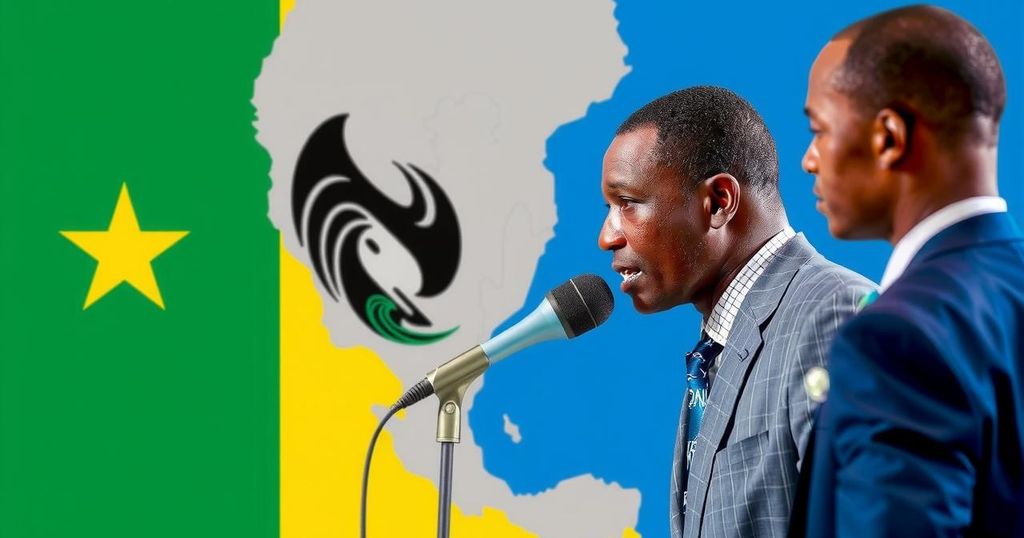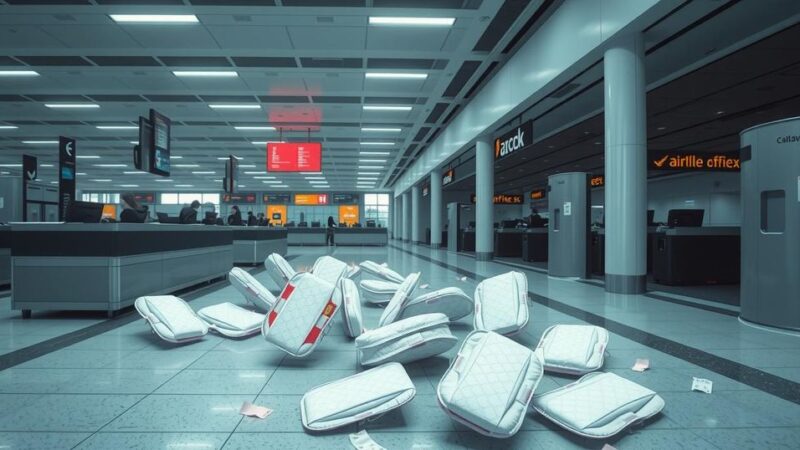In Guinea-Bissau, the media faces severe challenges as the upcoming elections on November 2 draw closer. Financial constraints force many media outlets to rely on political support, risking their independence. Meanwhile, the government imposes steep licensing fees, raising concerns about press freedom. Corruption remains rampant, and incidents of violence against journalists further threaten media operations and democratic processes in the country.
The upcoming elections in Guinea-Bissau, commencing on November 2, 2023, signify a challenging period for both political candidates and journalists. As the electoral landscape heats up, media organizations are under significant pressure to create coverage proposals aimed at seeking assistance from international partners, notably the United Nations Development Program (UNDP). This is critical since many local media outlets lack sufficient financial resources to independently cover the elections. Consequently, these outlets frequently rely on financial support from political parties and candidates, which raises concerns regarding their journalistic integrity. To counteract potential biases and maintain impartiality, there has been a concerted effort among media organizations to secure support from international entities. The UNDP has previously contributed funding to several media outlets, such as Sol Mansi and Control, during the parliamentary elections, yet significant challenges persist as reported aid is often insufficient. Furthermore, the Union of Journalists and Media Technicians reported unsuccessful attempts to garner additional support from organizations like the EU and ECOWAS. The media environment is fraught with difficulties, including oppressive licensing fees imposed by the government, which have been increased to $5,000 for private media licenses. In response, media organizations have submitted proposals for a more manageable fee structure of $3,000 for commercial stations and minimal fees for community broadcasters. With many radio stations struggling to finance even these reduced fees, the fear of operational cessation looms large as elections approach. The instability within Guinea-Bissau’s political system continues to exacerbate the situation. President Umaro Sissoco Embalo’s controversial decisions, including the dissolution of parliament and the impact of drug trafficking on governance, pose serious challenges to democratic processes. Recent reports highlight a widespread culture of corruption among government officials and the military, undermining public trust. Freedom House has documented instances of intimidation faced by media outlets. Such examples include armed attacks on Radio Capital FM and the forced removal of state radio stations from air during politically charged events, which reflect the dire threats confronting the press in Guinea-Bissau. Journalists have reported aggression from security forces, making it increasingly perilous to conduct their duties. For instance, an incident involving photojournalist Julio Oliveira, who was assaulted by police while covering an opposition political event, has raised alarm among press freedom advocates. In light of these tensions, the situation for journalists in Guinea-Bissau remains precarious, riddled with attacks on press freedoms and increasing governmental scrutiny. As the elections draw near, it is evident that both media independence and political stability are at risk.
The backdrop to the electoral climate in Guinea-Bissau is a complex interplay of political instability, media repression, and rampant corruption. The country, which has experienced significant political turmoil, faces a critical moment with elections approaching. The media’s role is crucial in fostering informed citizenry, yet they operate under severe financial constraints and political pressures that compromise their independence. The government’s imposition of exorbitant licensing fees raises significant barriers to media operations, further curtailing press freedom. Organizations like the UNDP have sought to provide some financial relief, but their efforts have been insufficient in the face of overarching corruption and extortion within the political framework. This environment culminates in a climate of fear for journalists, as highlighted by numerous incidents of violence against media professionals in recent years.
In conclusion, the media landscape in Guinea-Bissau is under severe strain as the country approaches pivotal elections. Critical financial limitations, combined with oppressive governmental policies and intimidation tactics, challenge the freedom of the press and the integrity of electoral coverage. The relationship between media organizations and political parties is fraught with potential conflicts of interest, necessitating urgent interventions from international bodies to uphold democratic principles. As such, understanding the intricate dynamics of Guinea-Bissau’s political and media environments is imperative for safeguarding journalistic integrity and fostering democratic governance.
Original Source: www.voanews.com






